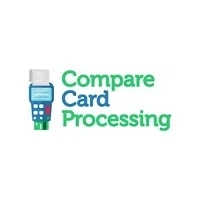Before you add a credit card payment system to your business or sign a contract with a merchant services provider, you need to understand what card processing is and how it works. Card processing may look simple but it is actually complicated and involves many interconnected technologies. It\'s important to learn about the following things so that you can make the best decision for your business, avoid losing money to fees, as well as the prevent security issues.
You don\'t necessarily have to understand all the inner-workings of card processing. But having knowledge about the basics will be a great help in identifying the best processing solution for your business. There are five key players involved in every card payment transaction.
Cardholder
This is your customer—the person who owns a credit card or debit card given by a bank. A cardholder is someone who pays for goods and services by swiping or tapping a bank card on a card machine.
Merchant
This is you, the owner of the business that sells goods and services. To accept credit/debit cards as a form of payment, you need to set up and maintain a merchant account with a merchant services provider by paying processing fees and other fees.
Acquiring bank and card processors
This is the financial institution that is responsible for facilitating transactions between banks. Its job is to allow merchants and businesses like you to accept credit and debit cards. It also provides card machines and software that will be used for card transactions. Another responsibility that an acquiring bank has is to deposit funds from credit card sales into the merchant’s accounts so they can get paid for the products and services rendered.
Note that acquiring banks often have third-party processors or independent sales organizations (ISO) and membership service providers (MSP) to process card transactions such as routing them to the respective issuing banks for approval.
Issuing bank
The bank that issues the credit/debit card to the cardholder. The issuing bank approves or denies card transactions sent by the acquiring bank or processor. The transaction is approved and the issuing bank pays the acquiring bank if the cardholder has enough funds or credit limit to make the purchase.
CardAssociations
Visa and Mastercard are examples of card associations that govern the financial institutions, including banks and card processors. They act as custodians and clearinghouses for their brands.
About the Author:
CompareCard Processing Ltd offers a platform to compare card readers available in the UK and finding the cheapest card machine for your business, credit card terminal providers in the UK.



